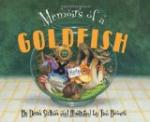In addition I believe the relation of every study to the whole realm of knowledge should be carefully explained. Art cannot be taught apart from history; history cannot be grasped independently of literature. Religion, ethics, science and philosophy are inextricably involved one with another.
But mere learning or culture, a knowledge of facts or of arts, is unimportant as compared with a realization of the significance of life. The one is superficial—the other is fundamental; the one is temporal—the other is spiritual. There is no more wretched human being than a highly trained but utterly purposeless man—which, after all, is only saying that there is no use in having an education without a religion; that unless someone is going to live in the house there is not much use in elaborately furnishing it.
I am not attempting to write a treatise on pedagogy; but, when all is said, I am inclined to the belief that my unfortunate present condition, whatever my material success may have been, is due to lack of education—in philosophy in its broadest sense; in mental discipline; and in actual acquirement.
It is in this last field that my deficiencies and those of my class are superficially most apparent. A wide fund of information may be less important than a knowledge of general principles, but it is none the less valuable; and all of us ought to be equipped with the kind of education that will enable us to understand the world of men as well as the world of nature.
It is, of course, essential for us to realize that the physical characteristics of a continent may have more influence on the history of nations than mere wars or battles, however far-reaching the foreign policies of their rulers; but, in addition to an appreciation of this and similar underlying propositions governing the development of civilization, the educated man who desires to study the problems of his own time and country, to follow the progress of science and philosophy, and to enjoy music, literature and art, must have a certain elementary equipment of mere facts.
The Oriental attitude of mind that enabled the Shah of Persia calmly to decline the invitation of the Prince of Wales to attend the Derby, on the ground that “he knew one horse could run faster than another,” is foreign to that of Western civilization. The Battle of Waterloo is a flyspeck in importance contrasted with the problem of future existence; but the man who never heard of Napoleon would make a dull companion in this world or the next.
We live in direct proportion to the keenness of our interest in life; and the wider and broader this interest is, the richer and happier we are. A man is as big as his sympathies, as small as his selfishness. The yokel thinks only of his dinner and his snooze under the hedge, but the man of education rejoices in every new production of the human brain.




